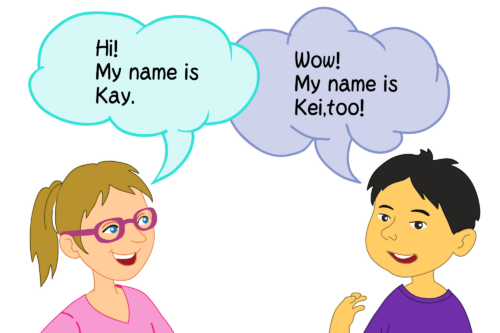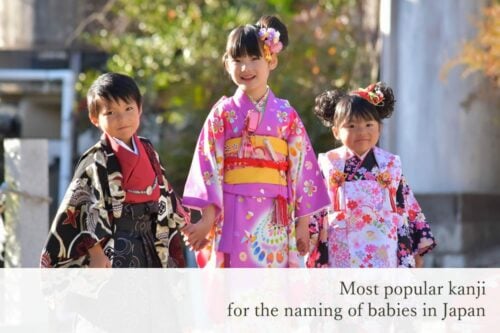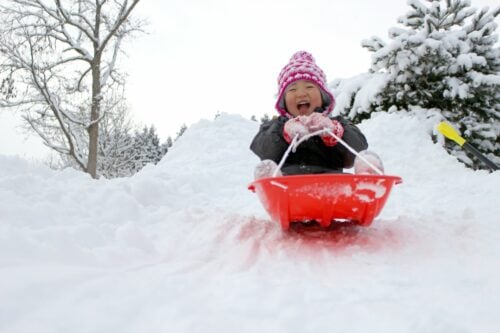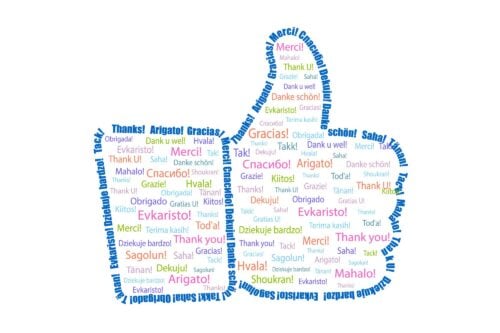Share on your favorite
Or copy the link
Below are navigation links that will take you to the main text and navigation menus.
26,551 first names, 70,620 last names, 333,585 kanji variations.
one of the best Japanese name search tools for your baby!

Having parents from two (or more) different cultural backgrounds offers a world of opportunities—language, cuisine, traditions, and of course, naming. When one parent is Japanese and the other is from another country, deciding on a child’s name can be both exciting and challenging. Some families want to reflect both cultures equally, while others prefer a name that sounds “international” and easy to pronounce in various languages. This article explores popular naming trends for children of mixed-nationality couples, highlighting examples from English-speaking countries, the France, Korea, China, Philippines, Indonesia, India, and Brazil. We’ll also cover how middle names work (or don’t) in Japan, and share a few practical tips on bridging cultural gaps.
Contents
A name is more than a label—it’s an identity marker that can unite two different heritages. For mixed families, choosing a name is often about finding balance: it should be pronounceable and meaningful for both sides of the family, without losing the distinct character of either culture.
It’s crucial to ensure the chosen name doesn’t have an unfortunate or awkward meaning in either language. A name that’s perfectly fine in Japanese might sound strange in English (and vice versa).
When one parent is from the U.S., Canada, the U.K., or Australia, the couple often chooses names that echo English while still feeling authentic in Japan:
Similarly, for girls, couples often adapt English names into Japanese phonetics:
Some families want a longer Japanese name but also a quick, Western-friendly nickname:
These nicknames bridge cultural gaps, making it easier for English-speaking relatives or friends to pronounce them.
In Franco-Japanese families, parents might keep a distinctly French name in katakana or adapt it slightly for Japanese usage.
Boys
Girls
Korean and Japanese naming systems can share short, two-syllable structures, making it simpler to find overlap.
Boys
Girls
Chinese characters (hanzi) and Japanese kanji overlap, sometimes allowing for shared meanings.
Boys
Girls
Many Filipino-Japanese couples opt for names that align with English or Spanish influences—common in the Philippines—yet also sound fine in Japanese.
Boys
Girls
The Philippines allows middle names, so some children have a Japanese middle name or vice versa.
Indonesia’s vast cultural diversity (Malay, Javanese, Sundanese, Balinese, etc.) allows various name styles.
Boys
Girls
India’s naming practices vary by region, religion, and language.
Boys
Girls
Brazil’s primary language is Portuguese, but with wide cultural influences. Japan has a large diaspora in Brazil.
Boys
Girls
In Japan, there is no legal custom of middle names, but some countries allow or even expect them. This gives parents an option to combine a Japanese name and a non-Japanese name:
When registering the birth, check each country’s regulations. In daily life, the child might use only their first name in Japan or use the full name abroad.
Naming a child with multinational heritage involves creative thinking, cultural knowledge, and a touch of compromise. Some parents opt for purely Japanese names that can be easily nicknamed, while others choose globally recognizable names adapted into Japanese script. Whether you pick Kaito (かいと)![]() for a boy or Emiri (えみり)
for a boy or Emiri (えみり)![]() for a girl—or go for something unique like Rian (リアン)
for a girl—or go for something unique like Rian (リアン)![]() or Marina (まりな)
or Marina (まりな)![]() —the key is selecting a name that feels natural and cherished by both sides of the family. Don’t worry too much about perfect pronunciation or spelling—love and intention are what truly make a name special. With a bit of research and open communication, mixed-nationality parents can find the ideal name that celebrates the beautiful blend of cultures in their child’s life story.
—the key is selecting a name that feels natural and cherished by both sides of the family. Don’t worry too much about perfect pronunciation or spelling—love and intention are what truly make a name special. With a bit of research and open communication, mixed-nationality parents can find the ideal name that celebrates the beautiful blend of cultures in their child’s life story.
This article is based on research from the internet, but if you notice any names that feel unnatural from a native perspective, please let us know through the Contact page! We also welcome requests from users in countries not yet featured.





Sort by: Most Relevant
Sorts names by how closely they match your search meaning. Names containing more kanji that match your search terms appear higher in the results.
Sort by: Most Kanji Variations
Sorts names by how many different kanji spellings they have. In general, names with more variants tend to be more familiar and widespread in Japan (with some exceptions).
Sort by: Most Viewed
Sorts names by page views on this site. Views reflect global traffic (including Japan), so this does not represent popularity among Japanese people only. A high view count does not necessarily mean the name is famous in Japan.
What is Hiragana?
Hiragana is one of the two Japanese syllabaries. Each character represents a sound (mora), not a meaning. It is used for native words, grammatical particles, verb/adjective endings (okurigana), and to show pronunciation above kanji (furigana). It developed from cursive forms of kanji.
What is Katakana?
Katakana is one of the two Japanese syllabaries. Each character represents a sound (mora), not a meaning. It is mainly used to write foreign words and names, loanwords, onomatopoeia, and for emphasis.
What is a Kanji Idea?
Kanji are Chinese characters used in Japanese writing. Unlike katakana and hiragana, each kanji character carries its own meaning.
When we convert your name into kanji, we select characters whose sounds match the Japanese pronunciation of your name, while also considering the meaning of each character. The result is a unique combination of kanji that both sounds like your name and carries meaningful symbolism.
We refresh the kanji combination each time you visit, so you can discover different options. If you find one you like, save it to your favorites!
What are English Syllables?
A syllable is a unit of pronunciation in English — it’s the beat you hear when you say a word.
Here are a few quick examples:
cat = 1 syllable
ba-by = 2 syllables
beau-ti-ful = 3 syllables
On this site, English Syllables show how a name naturally breaks into sounds when spoken in English. This helps you understand how English speakers naturally say the name and where they pause between sounds.
What are Japanese Morae?
A mora (plural: morae, Japanese: 拍 Haku) is the basic unit of sound in Japanese — think of it as one rhythmic “beat” when speaking.
Here are a few quick examples:
あ (a) = 1 mora
あい (a-i) = 2 morae
きょう (kyo-u) = 2 morae
On this site, Japanese Morae show how many “beats” a name has in Japanese. Most Japanese names have about 2–4 morae, which affects how natural and rhythmic the name sounds to native speakers.
This helps you see how the name fits into the natural rhythm of Japanese speech.
What is English Transcription?
“English transcription” (romanization) is the romanized form of a Japanese name, intended to reproduce its pronunciation as closely as possible. It is also useful for searching names on this site.
Japanese-Style Nicknames
In Japan, nicknames are used to express familiarity and affection. Typical features include:
Shortened forms: Names are often shortened for closeness, e.g., “Yuki” from “Yukiko” or “Taka” from “Takashi”.
Suffixes: Terms like “-chan” (often for girls, also for young children) and “-kun” (often for boys) are used among family and close friends. Among very close adults, “-chan” may still be used. More details
Use & context: Nicknames are informal—common among friends, family, or close colleagues—and are not suitable for formal or professional settings. Their use implies a certain degree of intimacy.
Long vowels: The long vowel mark “chōonpu” (ー) extends the preceding vowel. For example, “あーちゃん” (A-chan) lengthens the “あ” sound.
Households
Sorts surnames by the estimated number of Japanese households that use them. More households generally indicates a more common or well-known surname.
About our last-name data

Success
Migration completed successfully!